Exploring the leadership we need

What sort of leaders do we need to help solve the many challenges that face us today? How do we support ourselves to be leaders in our own right? These were a couple of questions we looked to answer at our recent Disrupting Leadership event held in the round at the Cockpit Theatre.
We assembled a panel of five speakers, each presenting a short overview of ideas related to disrupting leadership. This was followed by speakers posing questions directly to the audience, provoking a compelling discussion and debate.
Here is an overview of what each of our panelists presented at our Disrupting Leadership event:
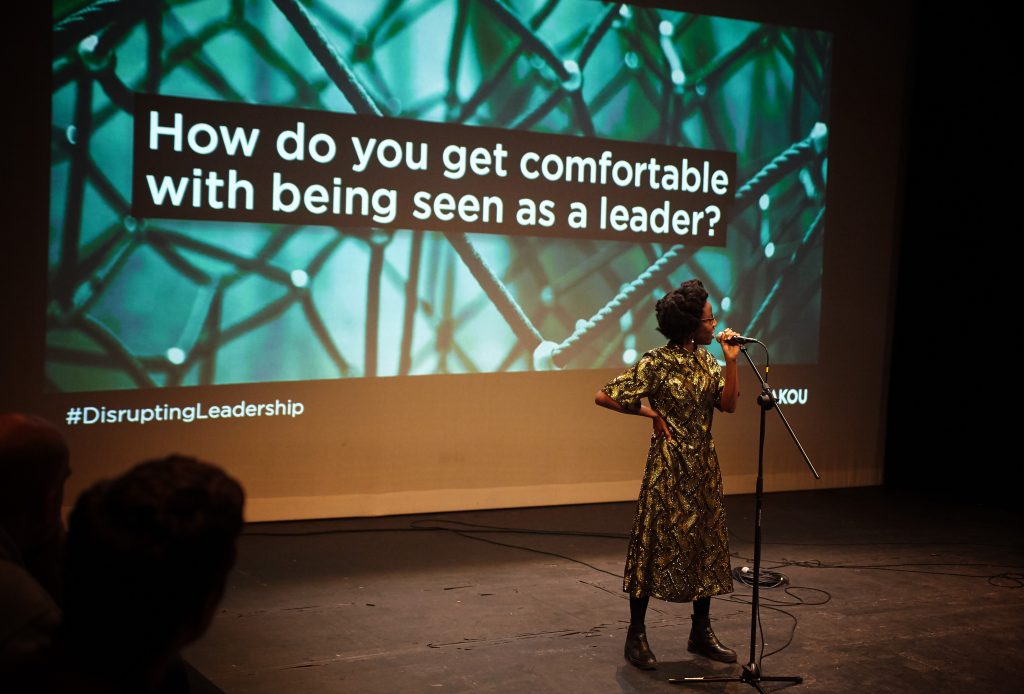
Melissa Willis
Willis spoke about her journey towards establishing WomenLikeMe. How her experiences and interactions with other inspirational leaders gave her the energy and motivation to start up herself. An effortless networker, Willis has grown the WomenLikeMe network organically, all the while driving the mission with her determined belief that so much can be achieved if women come together in solidarity and support of each other. In a true sense becoming a role model and leader for others to follow and be inspired by.
Willis talked openly about her journey of developing an understanding of how to better inspire and give ownership to others within her network. The reason being to ensure the development of new leaders and greater autonomy.
A question posed to the audience looked to explore how do people ‘get comfortable with being seen as a leader?’.
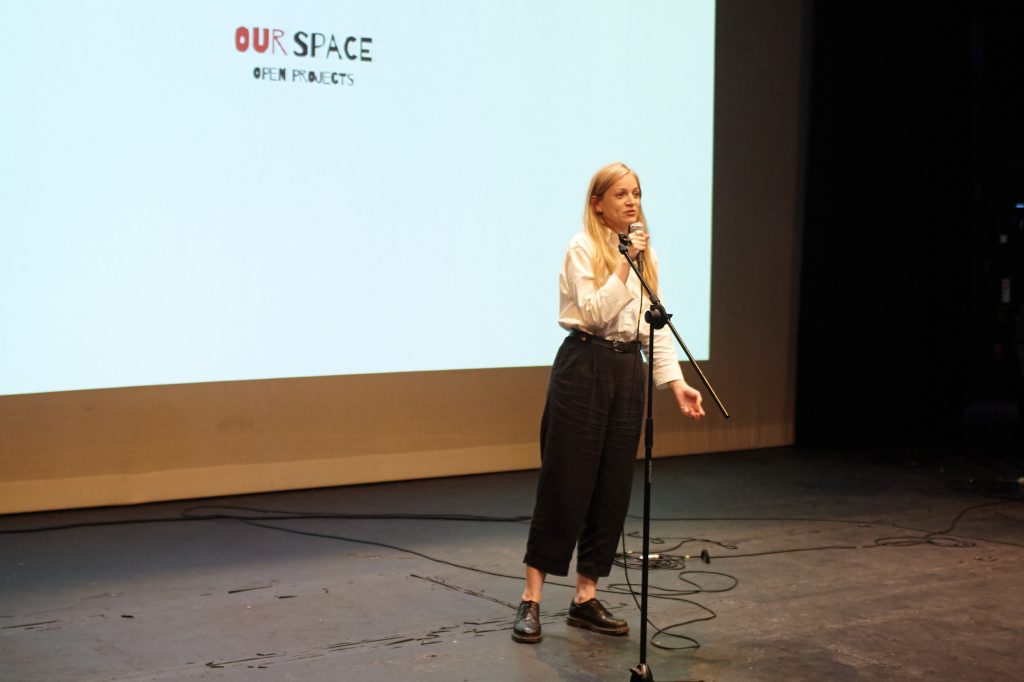
Stephenie Gamauf
Stephenie Gamauf, Co-Founder and Producer of OurSpace, discussed the journey of growing OurSpace to give better support to community centres to ensure they are inclusive and active in developing strong, locally embedded leadership. Gamauf discussed the importance of local leadership and how critical it is to have space in local areas where people can spend time with and learn from different types of people.
Gamauf’s questions to the audience sparked discussions around what inclusive leadership looks like. Working with people with varying experience and knowledge requires us to explore alternative ways of qualifying what a ‘leader’ looks like. Inclusive leadership often presents more of a challenge to us then it should, as it requires us to look at leadership through a non-traditional lens.
Gamauf posed the important question of how can we offer challenging feedback (or criticism) to leadership with both integrity and kindness. It was interesting to hear examples from the audience as to how people had experienced firsthand the alternative ends of the spectrum of feedback being accepted or not by leaders.
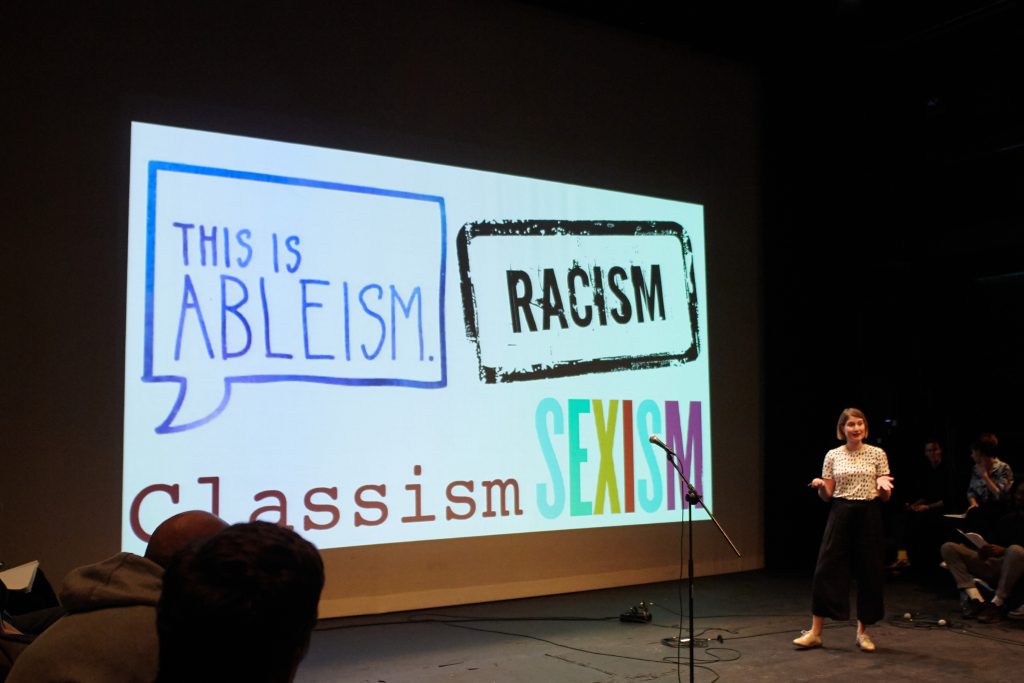
Sarah Tulej
Sarah Tulej works as a passionate, highly driven change designer and sideline community development entrepreneur. Tulej asked the audience to consider for five minutes (the time each speaker was awarded to speak) the key factors that often obstruct us from thinking of ourselves as leaders. Tulej encouraged the audience to consider how these obstructions often push away the issues we really care about.
‘You don’t need to be a voice for the voiceless, just pass the mic’
Su’ad Abdul Khabeer
The audience were taken on a rich tour of the identities currently lacking in public leadership roles and our places of work. A number of powerful facts were presented demonstrating the knock on effects that this lack of representation and diversity (from race, to class, to gender) can have.
Tulej shared Su’ad Abdul Khabeer’s wonderful quote about speaking up for others as leaders that perfectly sums up how we should view the role of a leader. ‘You don’t need to be a voice for the voiceless, just pass the mic’
Tulej asked the audience to consider and share what was holding them back from seeing themselves as leaders.
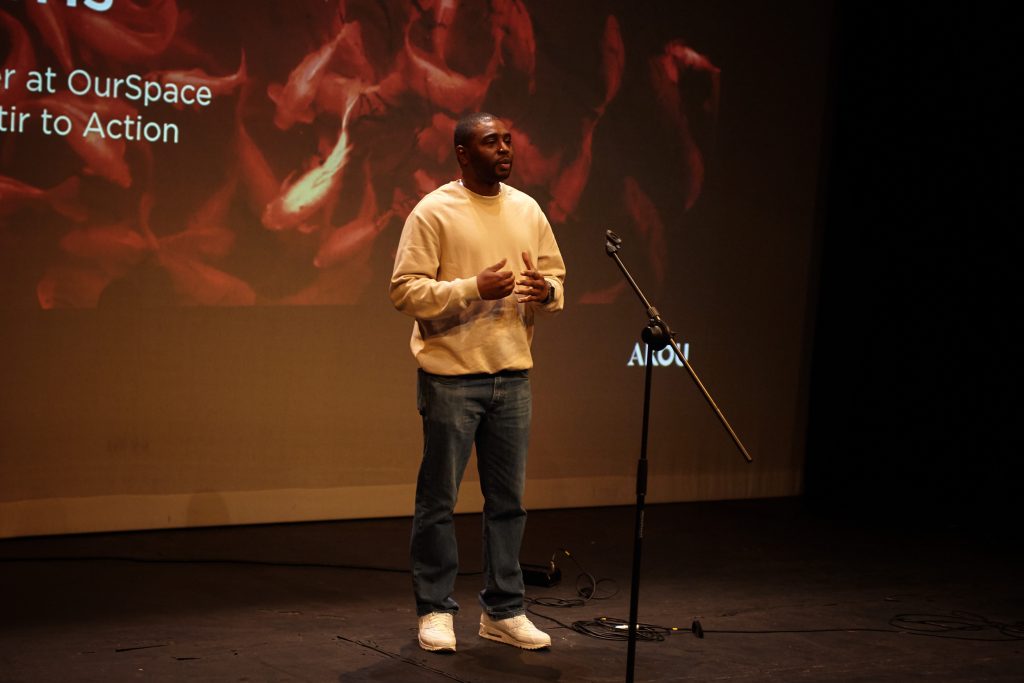
Sadiki Harris
Sadiki Harris is Director of Three One Six Media and Communication Lead for Black Thrive (an organisation concerned with Black Mental Health in Lambeth). He works with undercover and unconventional leaders through his community work and is dedicated to making change happen in his community in Lambeth and beyond.
Harris gave a deeply felt and authentic speech about his conflicting feelings with leadership and role models. He shared how growing up he felt that he didn’t have enough leaders around him to learn from. This led him to quickly realise that he had to become his own leader, a lesson many can’t or don’t learn. He has remained diligent and dedicated to forging his own path in life – not waiting for someone to lead the way. Being the oldest man in his family and now a father himself, he sees how despite the distance he has travelled without leadership in his life, and despite his scepticism of leadership as a necessary construct he is now being asked to take on the role of a leader for his family.
Sadiki’s honest and genuine account of his journey and battles with conflicting ideas addressed the topic of leadership disruption perfectly. He encouraged the audience to consider the varying roles that leaders and influences can have on our lives.
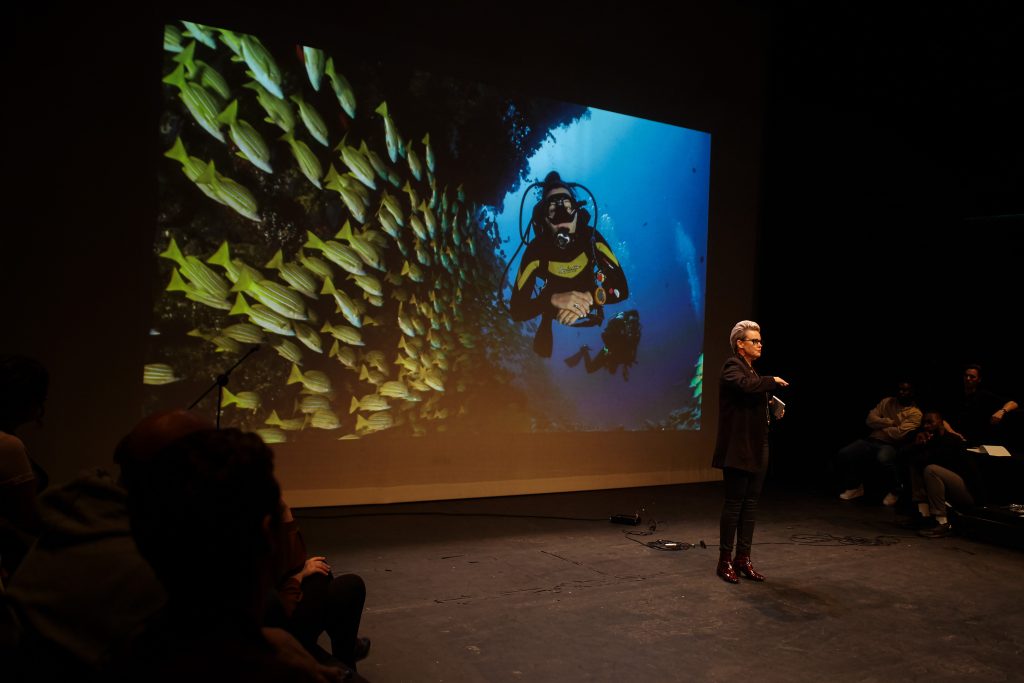
Cathrine Stagg-Macey
Cathrine Stagg-Macey ended the evening’s proceedings with a riveting account of her past antics of deep sea diving with sharks. Stagg-Macey is an executive and team coach with extensive corporate experience in strategy and consulting. She is Director of team coaching at Lea_p Leadership. And currently leads corporate communities towards new thinking of what leadership should look like,
Stagg-Macey’s message to the audience was that when it comes to good leadership make sure you have the right data. She presented the idea that often as leaders we can be continually playing Whack-a-Mole, bashing away one problem, then the next before returning to another.
Stagg-Macey urged the audience not to play Whack-a-Mole management, (quick fire problem solving with no long term strategy). Instead she proposed the idea that we should be always thinking how can we gather the right information together and make space and time to sit in the deep blue and learn to be comfortable in uncertainty, allowing the right intelligence to guide us together as teams.
Do you have your own thoughts on disrupting leadership? We would love to hear from you and keep the debate going.
